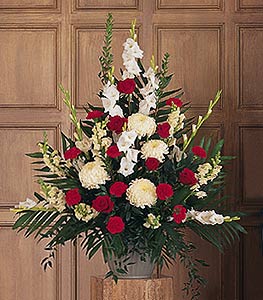|
|||||||||||||
|
Blossom Florist�s Flower Delivery in New Hampshire is the greatest. Our New Hampshire Flower Shops offer flower delivery in New Hampshire with a 100% satisfaction guarantee. Our goal is to send only fresh flowers to New Hampshire with our professional and caring staff that is always available to serve your needs.
|
|
New Hampshire Click here to Send Flowers to New Hampshire Today |
||
|
Our General State History and Information
Early historians record that in 1623, under the authority of an English land-grant, Captain John Mason, in conjunction with several others, sent David Thomson, a Scotsman, and Edward and Thomas Hilton, fish-merchants of London, with a number of other people in two divisions to establish a fishing colony in what is now New Hampshire, at the mouth of the Piscataqua River.
One of these divisions, under Thomson, settled near the river's mouth at a place they called Little Harbor or "Pannaway," now the town of Rye, where they erected salt-drying fish racks and a "factory" or stone house. The other division under the Hilton brothers set up their fishing stages on a neck of land eight miles above, which they called Northam, afterwards named Dover. Nine years before that Captain John Smith of England and Later of Virginia, sailing along the New England coast and inspired by the charm of our summer shores and the solitude of our countryside�s, wrote back to his countrymen that: "Here should be no landlords to rack us with high rents, or extorted fines to consume us. Here every man may be a master of his own labor and land in a short time. The sea there is the strangest pond I ever saw. What sport doth yield a more pleasant content and less hurt or charge than angling with a hook, and crossing the sweet air from isle to isle over the silent streams of a calm sea?" Thus the settlement of New Hampshire did not happen because those who came here were persecuted out of England. The occasion, which is one of the great events in the annals of the English people, was one planned with much care and earnestness by the English crown and the English parliament. Here James the first began a colonization project which not only provided ships and provisions, but free land bestowed with but one important condition, that it remain always subject to English sovereignty. So it remained until the "War of the Revolution." Smith first named it "North Virginia" but King James later revised this into "New England." To the map was added the name Portsmouth, taken from the English town where Captain John Mason was commander of the fort, and the name New Hampshire is that of his own English county of Hampshire. Our Historic Figure Franklin Pierce 1804-69: Franklin Pierce was born in Hillsboro and a resident of Concord. He served as the 14th President of the United States (1853-1857).
Daniel Webster 1782-1852: He was one of this country�s most famous statesmen. Webster was educated at Exeter and Dartmouth before serving in the U.S. Senate. In addition, he was Secretary of State under Presidents Harrison and Fillmore.
Alan Shepard 1923-Present: Born in Derry, Shepard was the first American in space. His historic flight was made in 1961.
Horace Greeley 1811-72: Greeley was born in Amherst and founded the New York Tribune in 1841.
|
||
Birthday |
Valentine's Day |
Christmas |
Mother's Day |
Father's Day |
We specialize in wedding | New Baby and Symphaty / funeral flowers.
Link Page
We specialize in wedding | New Baby and Symphaty / funeral flowers.
Link Page






















